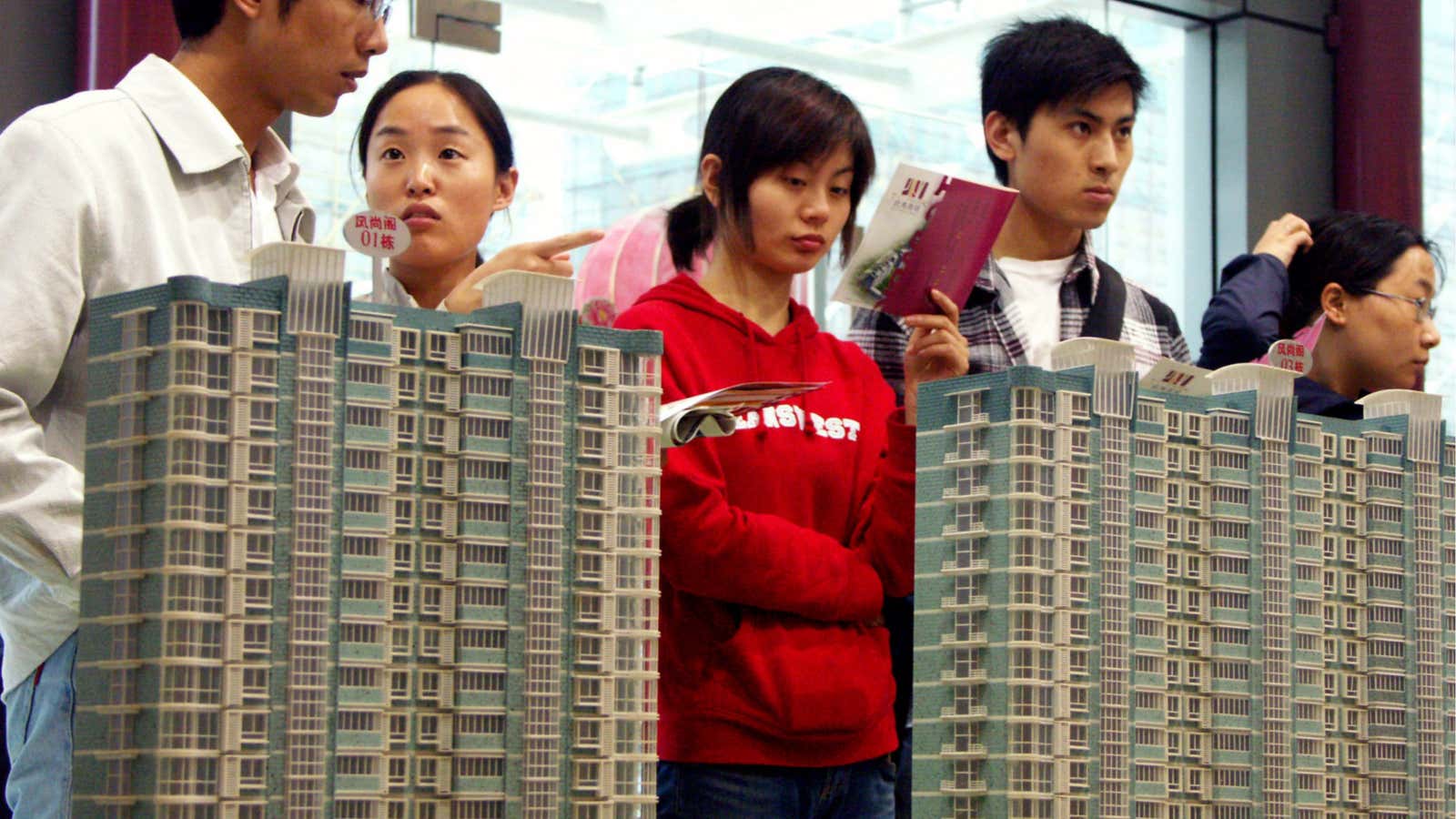For decades, the Chinese developer Evergrande Group was an embodiment of the success of the rapidly growing Chinese economy. Increasing disposable personal income fueled a growing passion for purchasing property which in turned propelled the rise of Evergrande, as well as its billionaire founder Xu Jiayin.
But ever since the Chinese government tightened rules on property companies’ borrowings last year as demand for real estate appeared to weaken, developers like Evergrande have been under greater pressure to repay the piles of debt they took on to fund their expansion across sectors.
Evergrande is a bellwether for the sector, given its gigantic footprint across the country of more than 1,000 projects. But given that it owes over $300 billion, analysts expect the company to enter restructuring, and for investors in the company’s dollar-denominated debt to take a 70% haircut. The company’s share price has fallen roughly 80% this year as investors lose confidence.
Evergrande’s debts are mounting
After it successfully averted a liquidity scare last year, Evergrande is now facing fresh complaints from buyers of the firm’s properties, and retail investors, who worry that it can’t deliver the projects on time, or repay its matured financial products or loans. Many investors have staged protests across China in recent days, a rare phenomenon in a country where any expression of dissent or anger is tightly controlled.
Overall, the company faces more than $300 billion in liabilities, which is roughly the equivalent of the overall public debt of Portugal. This has not only made the firm the world’s most heavily indebted developers, but also a swelling corporate headache for the Chinese Communist Party. If the company, whose business also involves a soccer team, a bottled water firm, and an electric vehicle unit, fails to complete projects or repay investors, there could be growing social unrest and serious financial risk to the Chinese economy.
The company has tried many ways of raising funding, including putting discounts on its properties, selling shares in its electric vehicle unit, as well as looking for buyers for a building it owns in Hong Kong, where it’s listed. But such efforts take time to materialize, and its debt is snowballing.
On Monday (Sept. 13), the company denied rumors it’s facing bankruptcy and restructuring, saying it is “going all out to resume production and deliver buildings.” However, yesterday in another statement it said that it expects to see a continuing decline in its contracted property sales this month, which it blamed on “ongoing negative media reports,” and this would place “tremendous pressure” on its cash flow and liquidity. The firm said it has hired two financial advisers to explore all feasible solutions to solve its debt problem. Despite the statement, shares in the company plunged more than 11% on Tuesday.
Quartz has reached out to Evergrande for comment.
But for now, the stress faced by Evergrande “should not be interpreted as a sign of general trouble in the real estate industry,” according to Victor Shih, associate professor at UC San Diego, even if some additional firms struggle with the regulatory changes in lending.
“Evergrande has been one of the most leveraged developers in China for years and many have predicted its demise, but incorrectly,” he explains. “Its current troubles are related to tighter monetary and banking policies which may also affect other highly leveraged developers.”
Angry investors
This week, hundreds of disgruntled investors surrounded the company’s offices in major Chinese cities to demand repayment of their financial products or loans, according to media reports.
On social media, there are pictures of swarms of investors holding banners that read “Evergrande, give us back our hard-earned money!” In one photo from Reuters, a manager of Evergrande’s wealth management product division was seen surrounded by mask-wearing investors, one of whom was lying next to the manager, supposedly due to exhaustion.
The protests emerged after accusations of the company failing to repay investors, many of whom are its own employees, for wealth products reaching maturity.
Evergrande has reportedly proposed ways to repay investors, including cash installments, properties, or investors’ payables on residential units that they have bought, according to Chinese financial media outlet Caixin. Xu, the company’s founder and chairman, vowed last week to repay all matured wealth products on time, and said that while he could “be left with nothing,” that should never happen to the company’s investors.
“If Xu Jiayin’s plan to repay by selling property fails, there will be an escalation in protests until the government decides to step in. I think some in the government would like to see how much cash the company can raise without government help before committing state resources,” Shih tells Quartz. “For retail investors and homeowners, this is a stressful period. “
